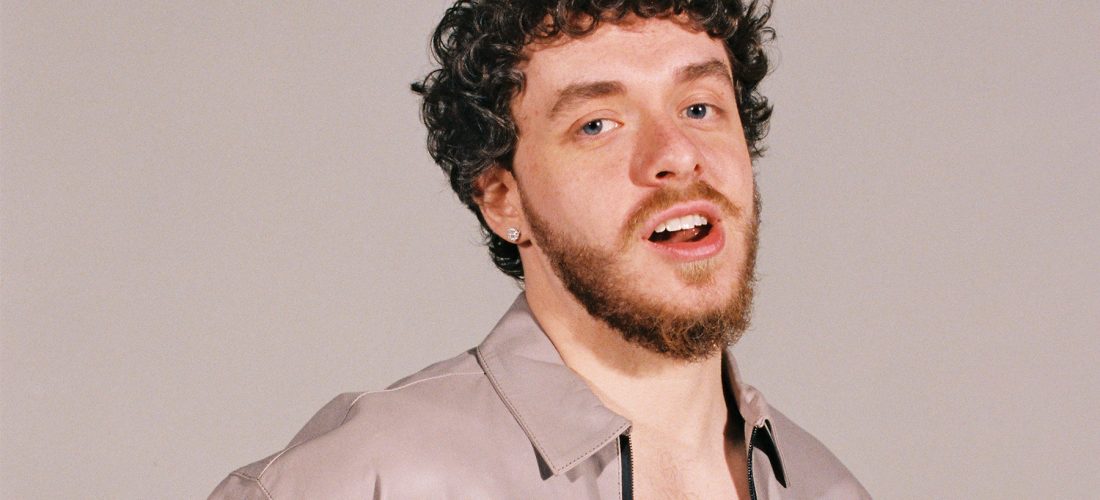Jack Harlow Takes His Pop-Rap Victory Lap on ‘Come Home the Kids Miss You’
What does Jack Harlow want to say? It’s an unresolved question at the heart of his second major-label album, Come Home the Kids Miss You, a fifty-minute affair that unfurls with buffered surfaces and seductive vibes. He imagines himself as the Most Interesting Man Alive, frequently touts his appeal with the opposite sex and pens several entries for your favorite streaming service’s curated playlists. Pharrell Williams, Drake, Justin Timberlake, Lil Wayne, and Snoop Dogg (via an uncredited cameo on “Young Harleezy”) fête the pop-rap heir apparent. Yet Harlow seems wary of embracing a thematic ambition beyond fame for fame’s sake, and a desire to dominate the pop-rap marketplace. To paraphrase Gertrude Stein, one wonders if there is a there there.
The contrast between Drake and Harlow’s verses on the much-hyped “Churchill Downs” proves instructive. While deservedly clowned at times for his boorish social-media antics and lame radio jingles like “Toosie Slide” and “Girls Want Girls,” Drake has also earned grudging respect for introspective performances full of lyrical epiphanies. He doesn’t disappoint here, alluding to a still-cooking beef with Pusha T (“All I hear is plug talk coming from middlemen”), fatherhood, and the phoniness of his contemporaries – another great verse from a rapper famed for his poetically aggrieved self-absorption. Meanwhile, Harlow can only offer bland braggadocio. “I mean, the world’s in denial but they all know where I’m headed for,” he raps. He seems slightly in awe of his company, unsure if he should ask advice from someone who “touch gold every time you touch a mic.”
Perhaps it’s unfair to unfavorably compare one of the biggest rap sensations of the past decade with a relatively new star. The 24-year-old Harlow has been releasing music since 2011; on “Young Harleezy,” he notes, “I’m 10 years in it, took me eight to start eating.” His breakout 2020 hit, “Whats Poppin,” earned a 2021 Grammy Award nomination; two more noms arrived this February after his verse on Lil Nas X’s chart-topping hit, “Industry Baby.” Still, awareness of him was once limited to top 40 listeners until now. (Pitchfork didn’t even bother to review Thats What They All Say.) Thanks to an aggressive media blitz – walking the red carpet at the Met Gala, getting a well-placed shout-out during an NBA playoff game, confabbing with Drizzy at the Kentucky Derby – trad-rap fans are finding it difficult to ignore him, and their suspicion that he’s just another privileged white rapper has fueled a growing backlash.
Self-appointed rap gatekeepers shouldn’t dismiss Harlow just yet. With a deft, smooth cadence and an assured vocal style, Harlow proves a charismatic and gregarious entertainer, resulting in the coolly restrained vibes of his first Billboard solo number-one hit, “First Class,” which sounds like a lounge-y downtempo groove from the early Aughts. On “Side Piece,” he punctuates his feelings of alienation over a slurry sample from Snoop Dogg’s “Beautiful” with a surprising reference to underground rap darling Mavi’s Let the Sun Talk. His best tracks, like “Nail Tech” and “Like a Blade of Grass,” find him cataloging the ways his life has changed since his Louisville, Kentucky youth. “I want to go back to Kentucky and shut down the State Fair/Visit my old teachers and tell them to take care,” he raps on “State Fair.”
There are magical moments on Come Home the Kids Miss You to be found amidst a primal need to sex his female fans. He occasionally draws out his lust with sensitivity, offering on “Lil Secret,” “I told my therapist about you/She always takes your side/Ain’t nobody I love more/I just need more time.” Too often, he comes on with all the clumsy panache of a clubby horndog. “But I’m just so inspired by the way you wear that thong/You know I like to dick-tate things – Kim Jong,” he raps on “Movie Star.” When he slides in your DMs like a nouveau-riche influencer, he seems unaware that one-night stands are made to be consummated and forgotten.
